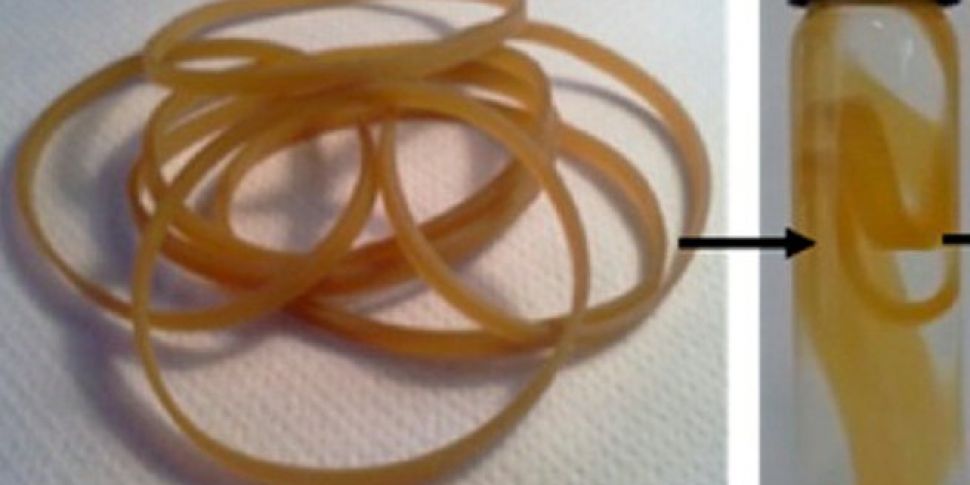A new study shows rubber bands could be transformed into a new type of sensor that can monitor body movements.
Researchers at Trinity College in Dublin and the AMBER materials science centre have discovered a method of creating wearable sensors by adding graphene to shop-bought rubber bands.
Graphene is a nano-material derived from pencil lead, which is 10,000 times smaller than the width of a human hair.
While rubber does not normally conduct electricity, the addition of graphene made the rubber bands electrically conductive - without degrading their properties.
Tests showed that any electrical current flowing through the graphene-infused rubber bands was very strongly affected if the band was stretched.
As a result, if the band is attached to clothing, the tiniest movements - such as breath and pulse - can be sensed.
It is the first time it has ever been achieved world-wide. The findings have been published in ACS Nano.
Use in medical fields
The discovery could be used to monitor blood pressure, joint movement, respiration and blood glucose.
It is thought the sensors could also be used in the automotive industry to develop sensitive airbags - and they could also be woven into clothing to monitor athletes movement or for patients undergoing physical rehabilitation.
It could also be helpful in medical device development as early warning systems for cot death in babies or sleep apnoea in adults.
The Minister for Research and Innovation Damien English is welcoming the discovery.
"This exciting discovery shows that Irish research is at the leading edge of material science worldwide...Material science underpins a wide range of market opportunities that have the greatest potential to deliver economic return through enterprise development, employment growth and job retention in Ireland," Mr English said.
"This discovery is a key stepping stone in our strategy of turning good ideas into good jobs. I congratulate Professor Coleman, his team and collaborators at AMBER for this great discovery and wish them well for the future," he added.
Professor Jonathan Coleman of AMBER said, "Sensors are becoming extremely important in medicine, wellness and exercise, medical device manufacturing, car manufacturing and robotics, among other areas. Biosensors, which are worn on or implanted into the skin, must be made of durable, flexible and stretchable materials that respond to the motion of the wearer."
"By implanting graphene into rubber, a flexible natural material, we are able to completely change its properties to make it electrically conductive, to develop a completely new type of sensor. Because rubber is available widely and cheaply, this unique discovery will open up major possibilities in sensor manufacturing worldwide," Prof Coleman added.









